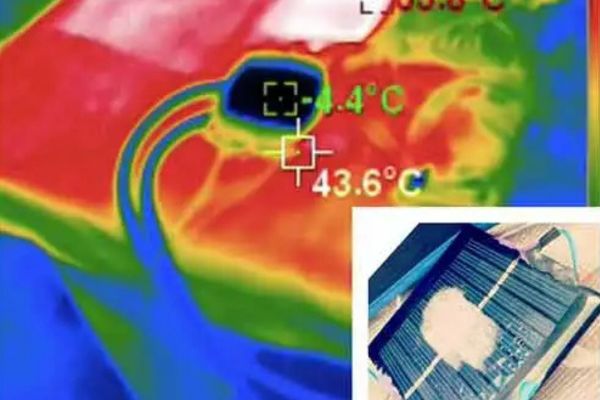Shoolini University’s Centre of Excellence in Energy Science and Technology before World Earth Day on April 22 has announced a pioneering advancement in solar energy technology with the development of a novel thermoelectric cooling (TEC) system for photovoltaic (PV) modules. This innovative method addresses the critical issue of solar panel overheating, significantly enhancing power generation and extending panel lifespan.
Led by researchers Dr. Rahul Chandel and Dr. Shyam Singh Chandel, the Photovoltaics Research Group at Shoolini University has demonstrated that TEC systems can precisely control panel temperatures by converting excess thermal energy into electricity, avoiding the limitations of traditional air- or water-cooling techniques. In their experimental study conducted in Shimla, a TEC-equipped solar panel maintained a stable temperature around 25°C, compared to a standard panel which soared to 63°C—an impressive difference of up to 38°C. This cooling innovation led to efficiency improvements in the range of 6–27%, depending on PV technology and installation type.
A major highlight of this technology is its environmental impact: unlike conventional cooling systems that rely on harmful chlorofluorocarbons (CFCs), TECs provide an eco-friendly alternative with zero greenhouse gas emissions. As global electricity demand for space cooling is expected to triple by 2050, especially in developing nations, traditional systems pose a growing environmental challenge. TEC technology addresses this by eliminating the need for refrigerants,Thermoelectric Tech offering a sustainable solution to the increasing demand for energy-efficient cooling while mitigating climate change. This makes TEC an essential innovation in balancing global energy needs with environmental responsibility, supporting clean energy initiatives (SDG 7) and climate action goals (SDG 13).
Highlighting the global importance of this research, Prof. Atul Khosla, Vice Chancellor of Shoolini University, said, “At Shoolini University, we are committed to driving transformative innovations that make a real-world impact. The breakthrough by Dr. Rahul Chandel and Dr. Shyam Singh Chandel represents a major step forward in sustainable solar technology and has been recognized by prestigious platforms like PV Magazine. This work has the potential to change how the world produces and utilizes solar energy.”
In addition to improving energy output, the TEC technology promises significant long-term operational and economic benefits. By reducing thermal stress, it extends the service life of solar panels, lowers replacement costs, and minimizes solar waste. While TEC systems can be retrofitted onto existing PV modules, their greatest impact is expected in new integrated designs optimized for diverse climates—from tropical zones to arid deserts.
Currently, the research team is seeking collaborations with industry partners and funding agencies to scale and commercialize the technology. Dr. Rahul Chandel emphasized the need for further innovation, particularly in developing high-efficiency thermoelectric materials through advanced nanofabrication techniques, to bring TEC cooling fully into commercial viability.
As the global demand for clean energy rises and extreme climates challenge existing solar technologies, Shoolini University’s innovation offers a promising path toward a more resilient, efficient, and sustainable energy future.

















